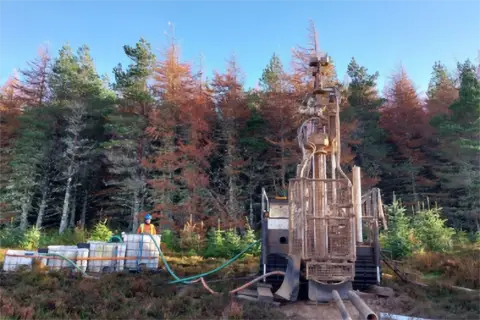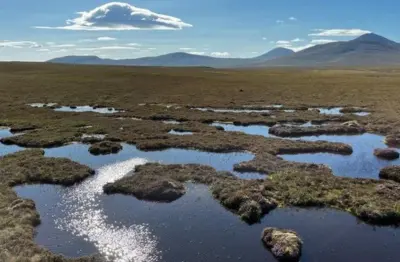Comprehensive Ground Investigation
Igne delivered a detailed ground investigation along the A66 to inform safe, resilient highway upgrades with full sampling, testing, and reporting.
Igne was commissioned to undertake a preliminary ground investigation along the A66 corridor between Bowes and Scotch Corner.
The investigation aimed to establish detailed ground and groundwater conditions, and to obtain samples for geotechnical and chemical testing, informing the design of major highway improvements to this key section of the Northern Trans-Pennine route.
The study area extended across the verges of the A66, adjoining side roads, and adjacent agricultural land to the north and south.
What Were the Ground Conditions?
Given the length and varied topography of the route, ground conditions were diverse. Made ground was present along the existing A66 corridor, often associated with embankments and historical quarrying to the west.
Superficial deposits typically comprised glacial till, with localised glaciofluvial sands and gravels. Bedrock geology included the Alston Formation (limestones, sandstones, mudstones, and siltstones), Four Fathoms Limestone, Five Yard Limestone, and Stainmore Formation. Bedrock outcropped in the west, gradually deepening towards the east.
Ground Investigation Delivery and Methodology
Working closely with our client, we also liaised with landowners, tenants, and agents to agree access routes and working methods, ensuring minimal disruption and full compliance with environmental and archaeological requirements.
Pre-condition surveys were completed prior to intrusive works. Despite prolonged periods of snow and heavy rainfall that saturated the ground and made access challenging, Igne mitigated the risk of damage by using crawler-mounted rigs, excavators, and dumpers, as well as high-flotation tyres on wheeled plant.
The comprehensive GI comprised of the following:
- Ecological and archaeological watching briefs
- 83 trial pits (3.0 - 6.0 m)
- BRE Digest 365 soakaway testing and plate load CBR testing
- 24 cable percussive boreholes
- 43 cable percussive boreholes extended into rock by rotary core drilling
- 9 dynamic sampling boreholes extended into rock by rotary coring
- 4 window sample boreholes
- In-situ standard penetration testing (SPT)
- Gas and groundwater monitoring installation and observation
- Extensive geotechnical, geo-chemical, and geo-environmental laboratory testing
- Production of a full factual report
GI Project Outcome
We successfully delivered a wide-ranging ground investigation across complex terrain and variable weather conditions, providing our client and theirs with the critical data needed to design safe, resilient, and sustainable infrastructure improvements to the A66 corridor.
Major infrastructure projects depend on dependable ground intelligence. Igne’s integrated approach - combining technical rigour, environmental care, and practical delivery - enables our clients to progress confidently from concept to construction.
If you’re developing or upgrading transport infrastructure and need accurate, site-specific ground data to support design and safety, speak to us - we are here to help you.
Other articles of interest

Ground investigation for a proposed substation Loch Buidhe
Igne was commissioned by SSEN Transmission to undertake the ground investigation at this proposed substation site at Loch Buidhe. The investigations were needed to provide information on the ground conditions for foundation design and construction of the proposed works and in relation to any geochemical contamination of the site.

Strathy South Wind Farm
Igne recently undertook an extensive site investigation project on behalf of SSE Renewables for the Strathy South Wind Farm. This contract spanned 15 weeks and took place in an incredibly environmentally sensitive area of Scotland.


